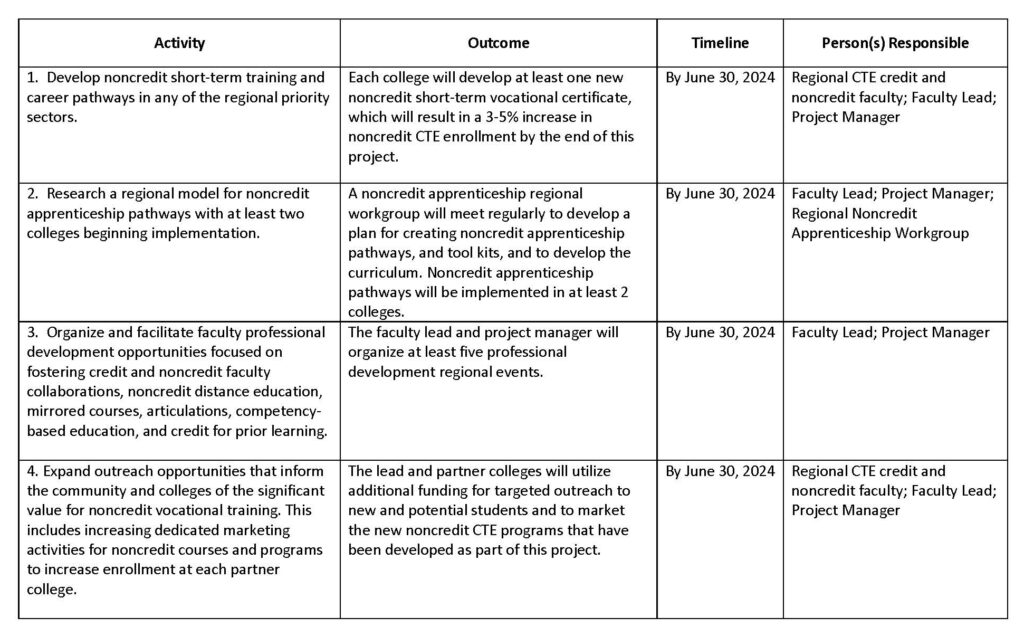Noncredit programs have historically provided transformative learning environments for underrepresented adults. Establishing noncredit vocational programs that are free, short-term, flexible, and accommodate students’ schedules and diverse learning goals fills both urgent and ongoing regional needs. This project will increase noncredit enrollment, noncredit certificate attainment, and program completion, thus addressing gaps such as high unemployment and the unmet regional need of underrepresented populations in need of short-term training. This will be achieved through the following goals:
Short-term training programs are designed to be completed within a few months to less than a year. The priority sectors produce essential workers, have high labor market demand, and lead to career ladders with living wages. Each college’s faculty will establish and strengthen noncredit career technical education pathway(s) in at least one of the regional priority sectors. Courses will be developed as in-person and distance education with some courses including work experience and apprenticeship pathways. This will directly impact the metrics of noncredit milestones, certificate attainment, and completions.
This project intends to develop noncredit work experience courses across the region and begin implementation. Students can gain on‐the‐job experience while colleges increase employer engagement. Noncredit work experience courses are an untapped opportunity for colleges to enable disproportionately impacted students to be trained in a high‐demand field and also enter career paths, thus improving employment opportunities. A regional implementation plan for noncredit work experience will be created that considers best practices and regional and local need. In addition, the faculty lead of this project will work in collaboration with the faculty community of practice to develop the noncredit work experience curriculum and instructional roles. This project will use the strategies mentioned above to address the regional priorities of consciously and intentionally infusing diversity, equity, and inclusion in all strategies and activities, strengthening CTE career pathways and programs of study, and implementing strategies and activities to help students complete their programs.
Because this project has always focused on noncredit curriculum and program development, as well as teaching and learning for noncredit students, professional development has always been prioritized. The faculty community of practice formed over the last rounds is one of the strengths of this project. This project will continue to provide workshops and trainings for both credit and noncredit faculty and staff related to career education and pathways. All professional development events have an overarching goal of increasing noncredit CTE programs and enrollments while strengthening credit and noncredit connections.

